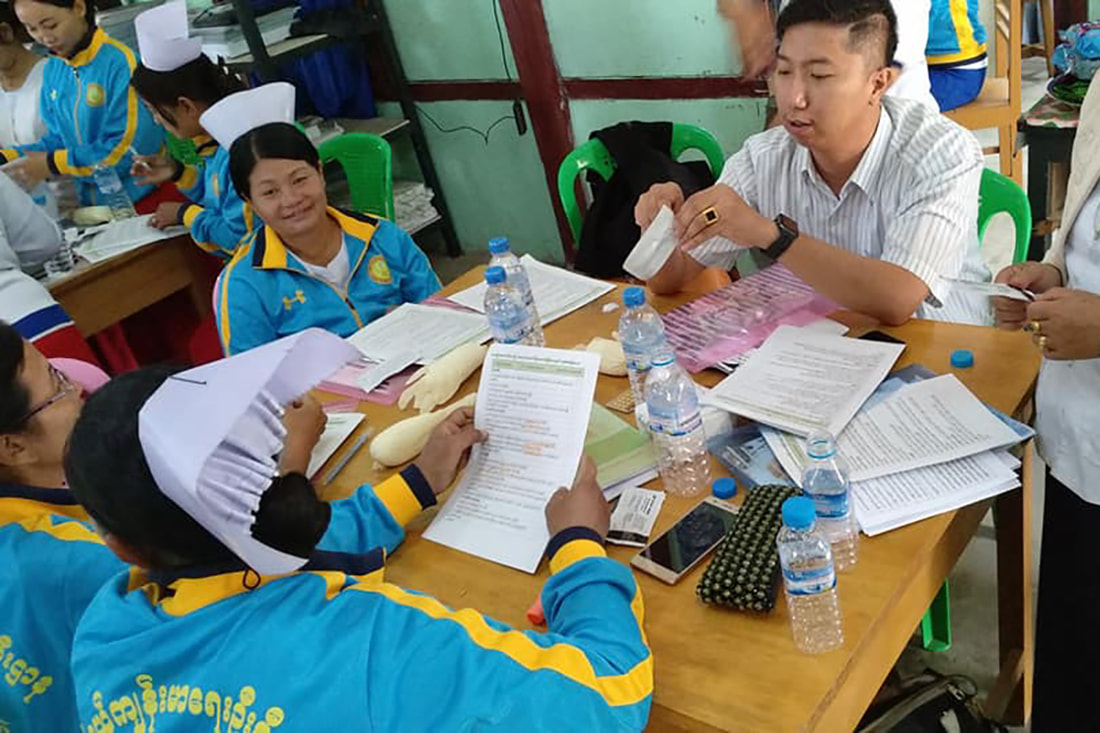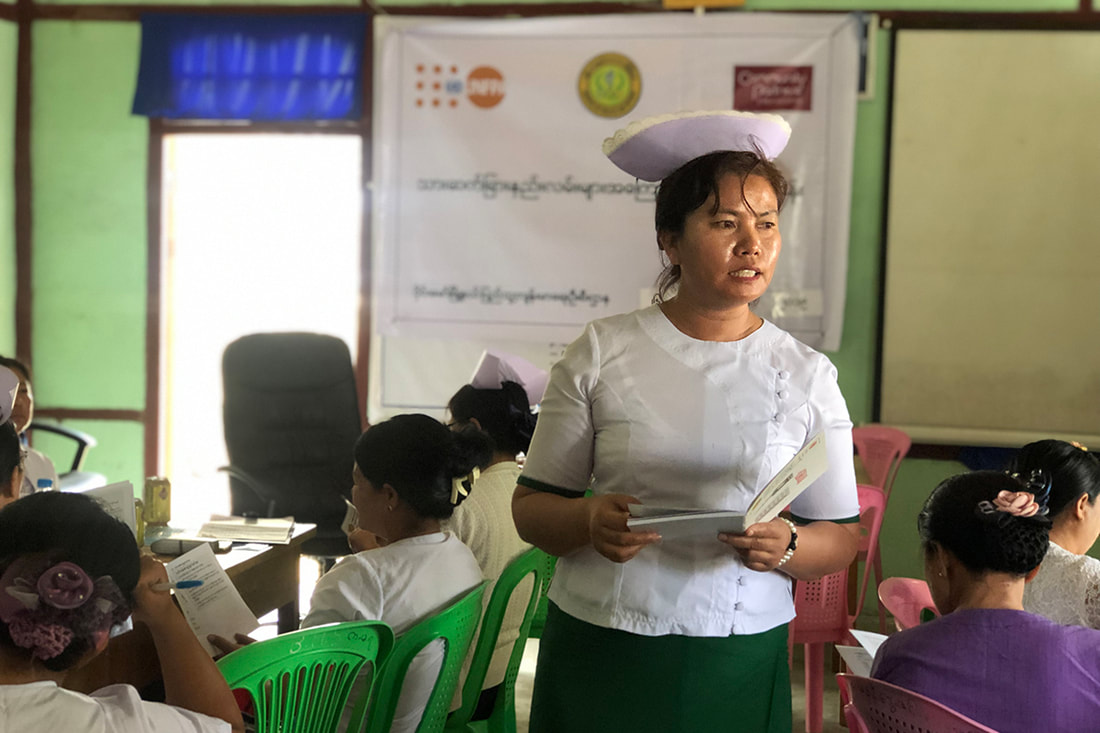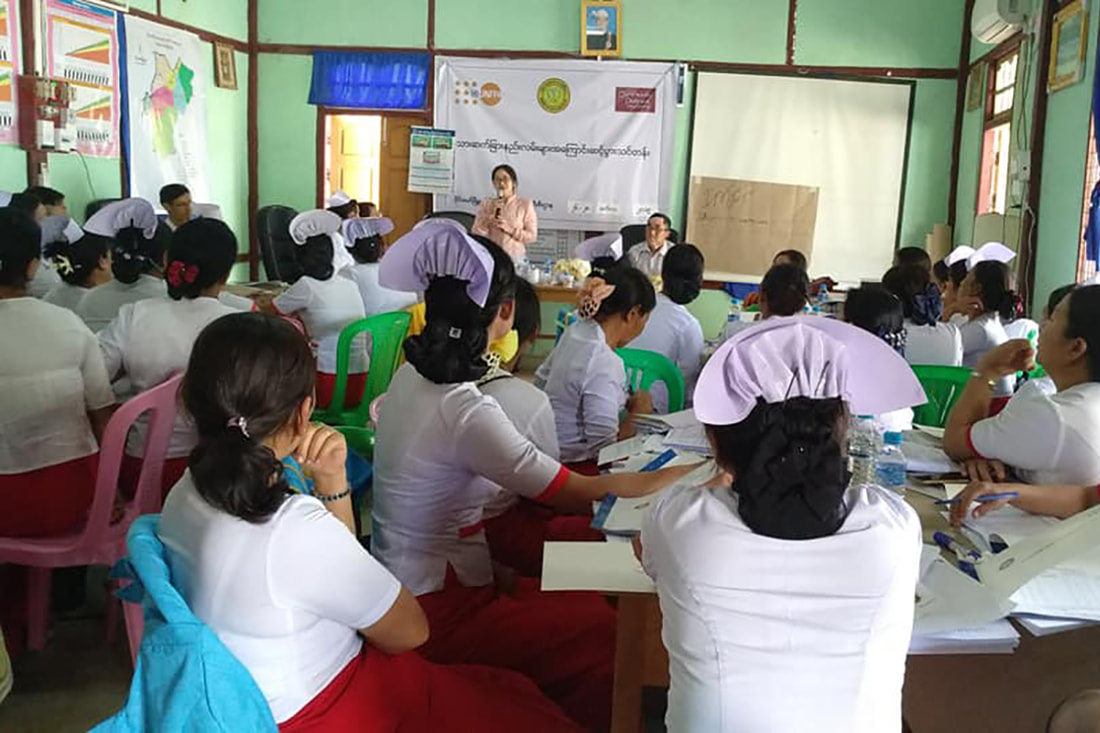|
Many women in remote and conflict-affected communities of Kachin State, Myanmar, lack access to reliable and comprehensive birth control options. Until recently in Myanmar, injectable hormonal birth control could only be provided by midwives. However, most communities in Kachin State do not have regular access to midwife services. In an important recent development, the Myanmar Ministry of Health and Sports (MoHS) introduced new guidelines allowing auxiliary midwives (AMWs) to administer a self-injectable hormonal birth control option (known as DMPA-SC), once they have been sufficiently trained. As the AMW network can reach more remote communities, this change has the potential to transform access to reliable and comprehensive birth control for many thousands of women of reproductive age in Kachin State and across Myanmar. In February 2019, Community Partners International (CPI) launched a six-month project to prepare 600 AMWs as well as midwives and other basic health staff in nine townships in Kachin State to implement a community-based family planning service delivery package including self-injectable hormonal birth control, birth control pills and condom use. The project is part of the FP2020 Rapid Response Mechanism, managed in Myanmar by the United Nations Population Fund (UNFPA), that aims to provide 120 million more women and girls worldwide with access to contraceptives by 2020. In the first few weeks, project representatives met with key stakeholders at state, township and community levels to explain the task shifting model to enable AMW involvement in rolling out the community-based family planning package. These initial meetings were crucial to build understanding and support for the project. In the third week of February, CPI organized a State-level training of master trainers on community-based family planning with 20 participants. This was followed by in March, April and May by a series of three-day workshops in the nine townships covered by the project to train AMW's, midwives and basic health staff to be able to provide a package of family planning, including self-injectable hormonal birth control, birth control pills and condom use, in their respective communities.
In June and July 2019, CPI will conduct monitoring and supervision activities to support AMWs and midwives during the early stage of implementation of the new community-based family planning service package Comments are closed.
|
AuthorCPI Admin Archives
July 2024
Categories
All
|
|
|
COMMUNITY PARTNERS INTERNATIONAL
580 California St Fl 16, Ste 1658, San Francisco, CA 94104-1068, USA [email protected] +1 510 225 9676 We are a registered nonprofit 501(c)(3) Public Charity. TAX ID 94-3375666 |
©
Community Partners International




 RSS Feed
RSS Feed
